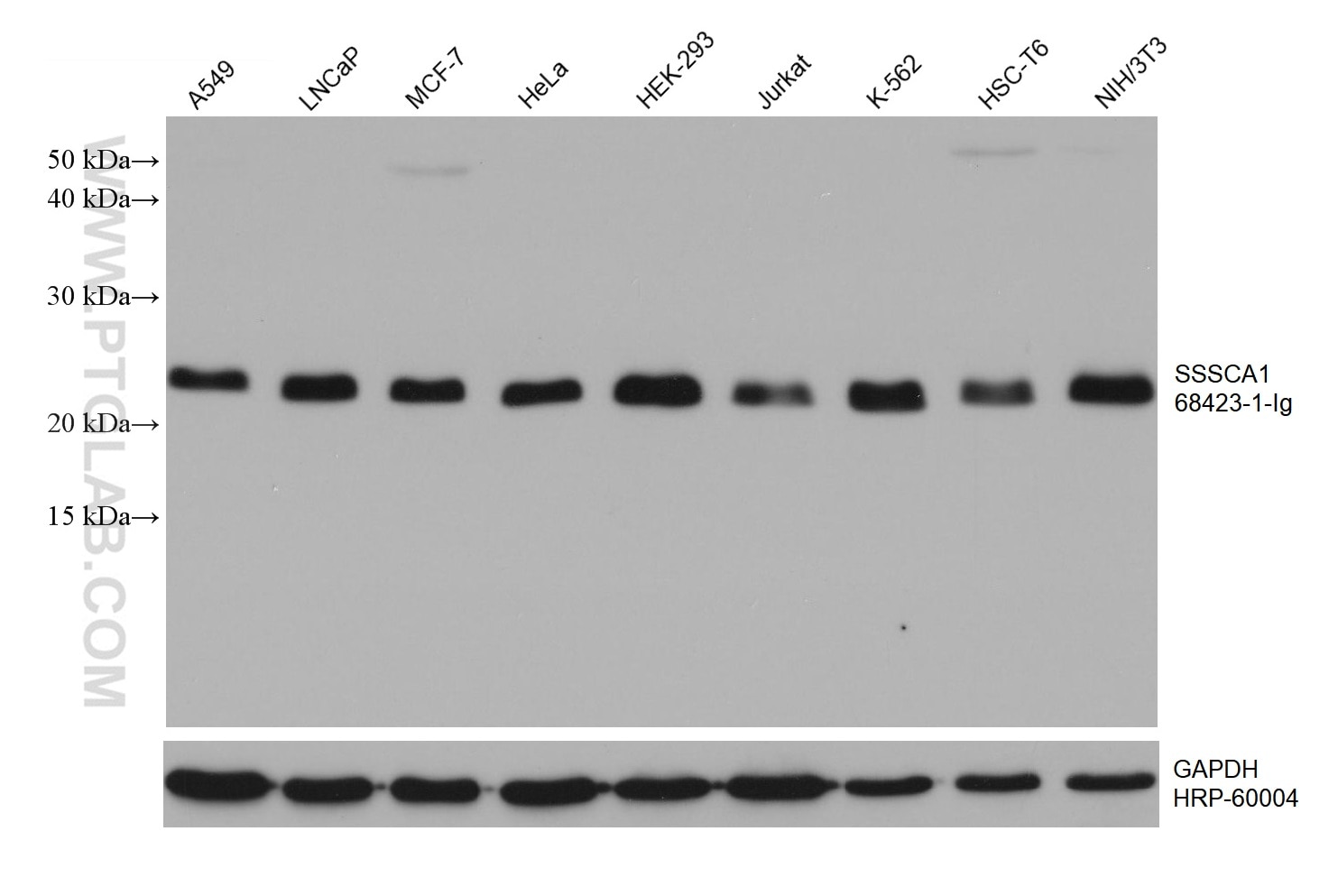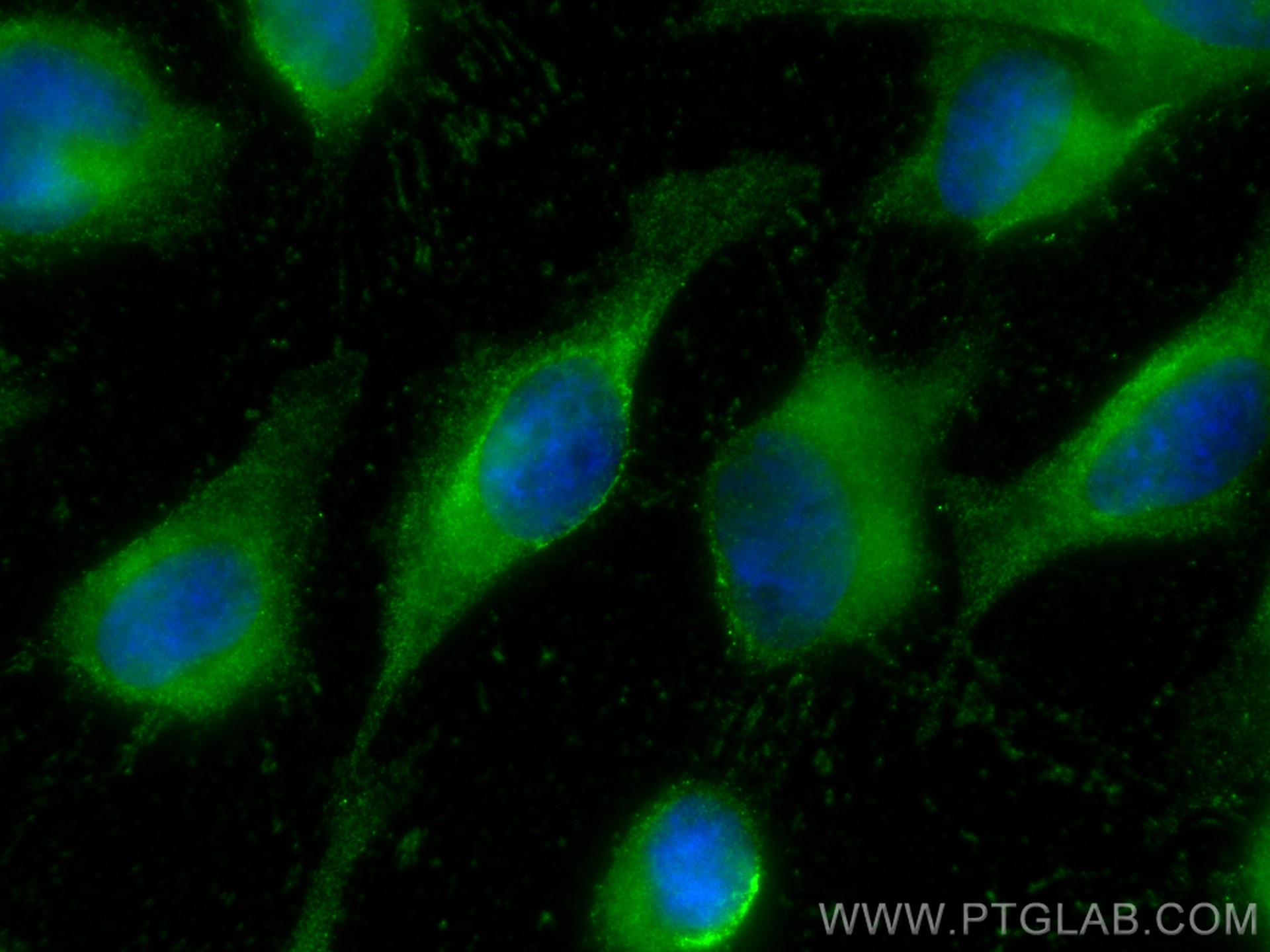Validation Data Gallery
Tested Applications
| Positive WB detected in | A549 cells, LNCaP cells, MCF-7 cells, HeLa cells, HEK-293 cells, Jurkat cells, K-562 cells, HSC-T6 cells, NIH/3T3 cells |
| Positive IF/ICC detected in | HeLa cells |
Recommended dilution
| Application | Dilution |
|---|---|
| Western Blot (WB) | WB : 1:2000-1:10000 |
| Immunofluorescence (IF)/ICC | IF/ICC : 1:200-1:800 |
| It is recommended that this reagent should be titrated in each testing system to obtain optimal results. | |
| Sample-dependent, Check data in validation data gallery. | |
Product Information
68423-1-Ig targets SSSCA1 in WB, IF/ICC, ELISA applications and shows reactivity with Human, mouse, rat samples.
| Tested Reactivity | Human, mouse, rat |
| Host / Isotype | Mouse / IgG1 |
| Class | Monoclonal |
| Type | Antibody |
| Immunogen | SSSCA1 fusion protein Ag16783 相同性解析による交差性が予測される生物種 |
| Full Name | Sjogren syndrome/scleroderma autoantigen 1 |
| Calculated molecular weight | 199 aa, 21 kDa |
| Observed molecular weight | 23 kDa |
| GenBank accession number | BC014791 |
| Gene Symbol | SSSCA1 |
| Gene ID (NCBI) | 10534 |
| RRID | AB_3085138 |
| Conjugate | Unconjugated |
| Form | Liquid |
| Purification Method | Protein G purification |
| UNIPROT ID | O60232 |
| Storage Buffer | PBS with 0.02% sodium azide and 50% glycerol , pH 7.3 |
| Storage Conditions | Store at -20°C. Stable for one year after shipment. Aliquoting is unnecessary for -20oC storage. |
Background Information
SSSCA1, also named as Autoantigen p27, is centromere-associated protein. It may induce anti-centromere antibodies. SSSCA1 plays a role in mitosis. It's involved in Sjogren syndrome/scleroderma. The calculated MW of SSSCA1 is 21.5 kDa (native form), with modification the MW is about 23-27 kDa.
Protocols
| Product Specific Protocols | |
|---|---|
| WB protocol for SSSCA1 antibody 68423-1-Ig | Download protocol |
| IF protocol for SSSCA1 antibody 68423-1-Ig | Download protocol |
| Standard Protocols | |
|---|---|
| Click here to view our Standard Protocols |

